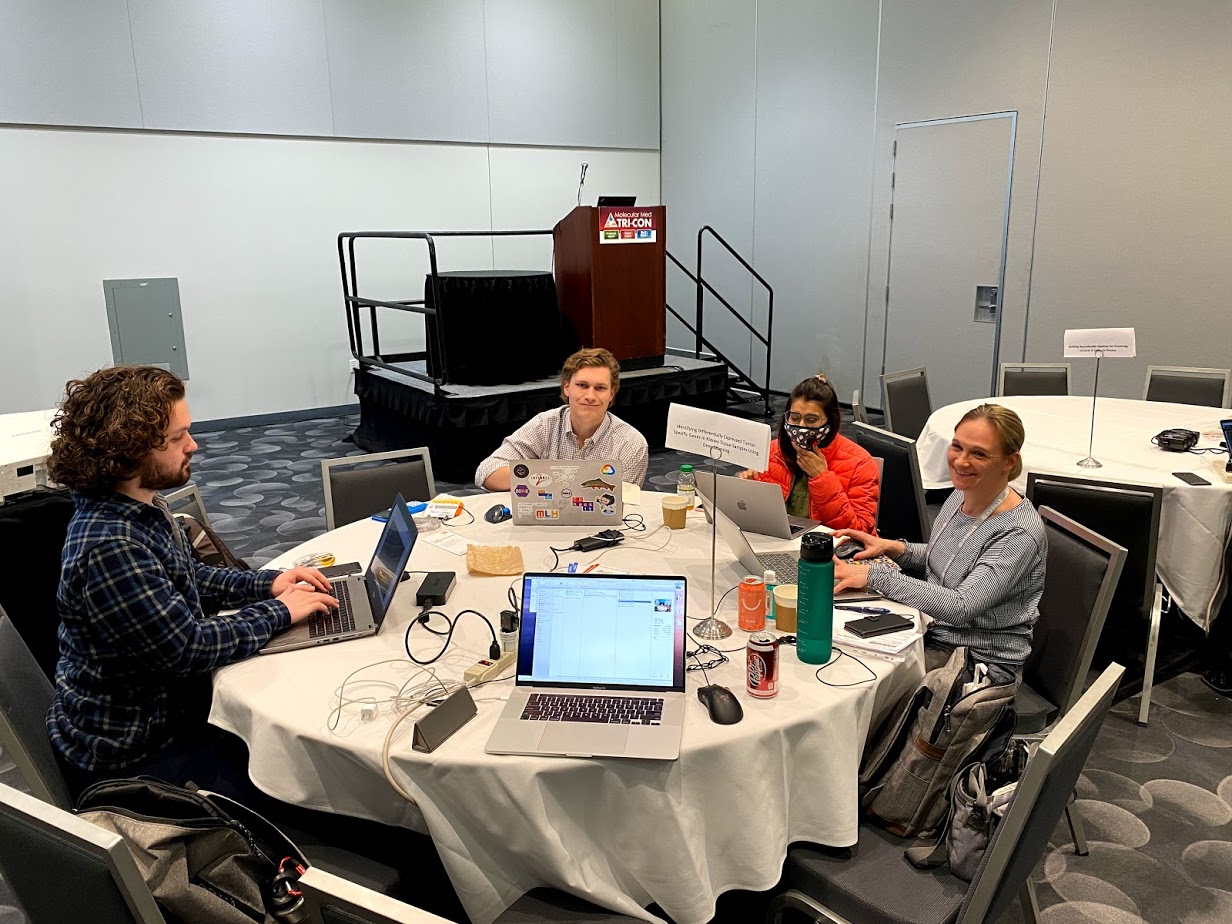Summary
Rarekidneycancer.org's key mission is to enable creation of treatments for rare kidney cancer patients. Unfortunately, most cancer treatments are "population-based", which assumes that a disease is (mostly) the same among all patients labeled with the same disease type (e.g. p1RCC). But often, each individual tumor has its own set of unique mutations, and this variation likely makes similar types of cancer respond differently to the same treatment. Not only tumors between patients, but within the same patient as time progresses. This is because each patient's body is its own ecosystem, and as the ecosystem changes (for example via the addition of various drugs) parts of the cancer die, but minute, genetically-distinct non-targeted parts of the cancer do not, and so "select out" to thrive in the new environment.
So how do we deal with this? Currently, rarekidneycancer.org assumes that although the treatment may not be the same between patients, the plan for arriving at a treatment is. We outlined the current version of our plan in a prior post. In brief, well before the hackathon, we gathered the data, verified it and gave it to the research teams. The teams explored the data and brought their findings to the hackathon. At the hackathon, they then reviewed the research results, identified potential targets and mapped the targets to potential therapeutics.
Detail
The Tri-con hackaton spanned 3 days and was the first hackathon run in conjunction with a commercial tradeshow. This produced several notable differences from prior hackathons, but the major positive difference was that Dr. Jeannette Koschmann from Genexplain left the show floor and joined the Clemson team (Reed Bender, Ben Shealy and Benafsh Hussain from Dr. Alex Feltus' group) shortly after the hackathon started. So the Clemson team was able to take the UCSF/Yale data and produce a set of candidate genes which (hopefully) account for the disease. Then Dr. Koschmann used the GeneXplain software to map from this gene set to some suggested therapeutics. We were unable to do this in prior hackathons, and were only able to do it this time due to the tricon format, which enabled the kind participation of Dr. Koschmann and GeneXplain.
As such, we were able to hit our primary goal, which was to make it all the way to the plan's activity 9 "discuss potential therapeutics". Clemson is generating a paper from the research and discovered a new potential collaborator in GeneXplain. GeneXplain was able to demonstrate how their technology worked, rarekidneycancer.org has some progress to discuss with specialists in the field and TRI-con/RTTP can rightfully claim credit for enabling it all. Those interested in more detail can examine the documents generated below at the hackathon.
Future Work
Going forward, we hope to combine the advantages of both TRI-con and prior hackathons. E.g. Recruit (more) teams via direct email as well as from the tradeshow, allow remote team participation and make cloud storage available well before the show. Oh, and one final "learning", next time, we'll try not to hold a hackathon during a pandemic.
Acknowledgements
- Tissue: UCSF's Dr. Max Meng and Tasha Lea
- Sequencing: Yale's Dr. Kaya Bilguvar and Christopher Castaldi and UCLA's Dr. Brian Shuch
- Sequencing Experiment Specification and Validation: Mike D'Amour for specifying the sequencing experiment parameters and fastq Validation Process (see this report)
- Target Identification: Clemson's Reed Bender, Ben Shealy and Benafsh Hussain from Dr. Alex Feltus' group
- Hackathon: The TRI-con organizer: Kaitlyn Barago of healthtech and Pete Kane of RTTP
- Therapeutic Recommendations: GeneXplain's Dr. Jeannette Koschmann
The TRI-con 2020 Team: Bean Shealy, Reed Bender, Benafsh Hussain (who was into the mask thing waaaaay before it was cool.), Dr. Jeannette Koschmann



Add new comment